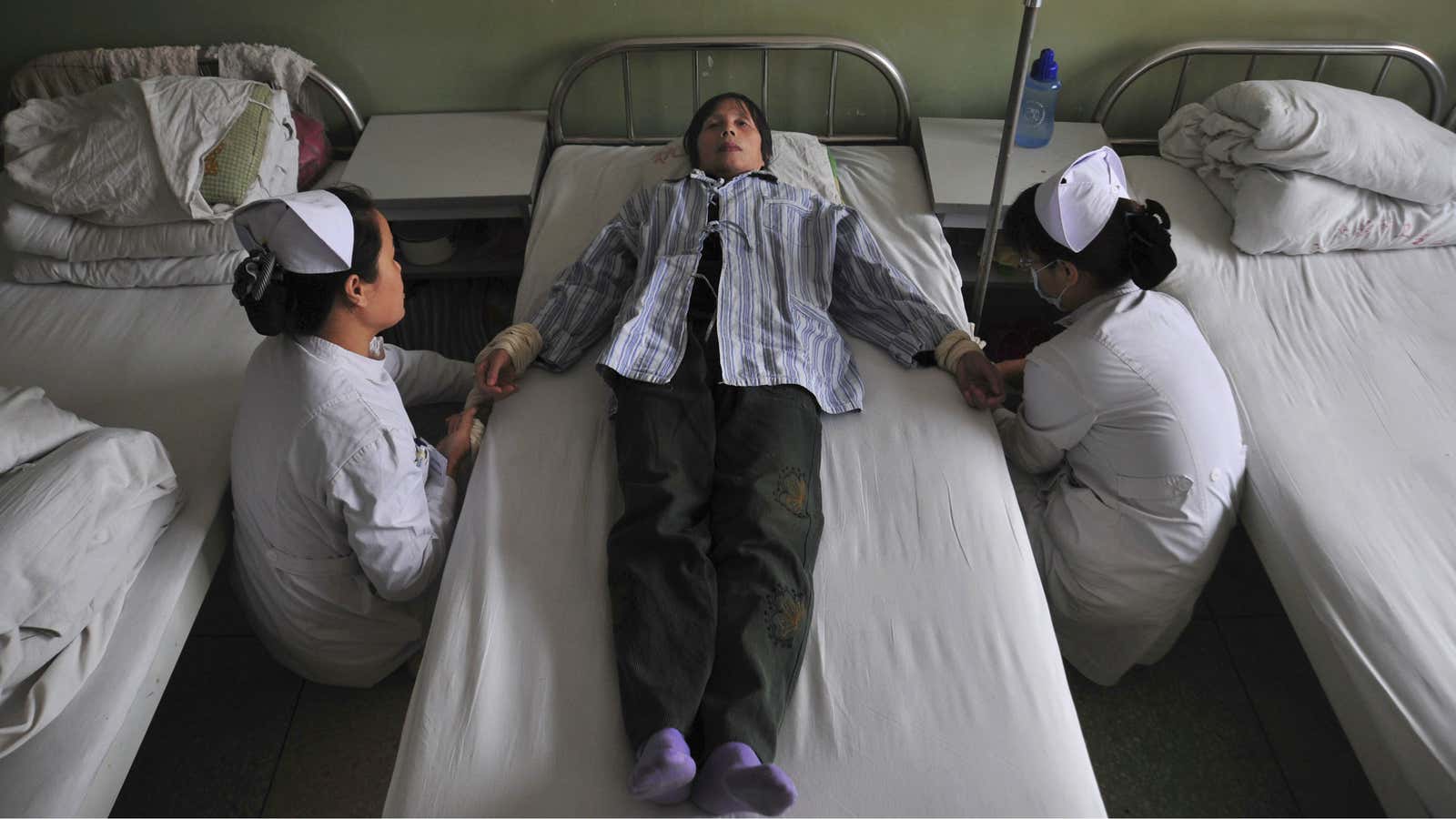For years, human rights activists have accused the Chinese government of harvesting organs from executed prisoners and selling them to hospitals. In 2009, the government said it was working to stop the practice. But a new report suggests it has persisted.
Former Canadian politician David Kilgour, human rights lawyer David Matas, and journalist Ethan Gutmann have published a 718-page paper that tracks organ transplant figures from select hospitals and measures them against what the Chinese government holds up as official numbers.
The researchers found that 164 hospitals in China had received official approval to conduct transplants. But hundreds more had applied for the proper license to do so in 2007. Even when they did not receive permission, they continued to do the procedures, the report says.
“Despite not being approved by the Ministry of Health, many of these facilities have not halted their transplant activities and some of these non-approved institutions had significant transplant volumes,” the report reads. “Compared to the Ministry-approved hospitals, these institutions have more flexibility to obtain living organ sources through various channels and to continue organ harvesting.”
Both approved and unapproved hospitals have been conducting transplants at alarming rates. The Chinese government, through state-media outlet Xinhua, said that in 2015 doctors completed about 10,000 organ transplants. But the authors found that many of the hospitals and doctors claimed to have been completing thousands of organ transplants annually. Based on these claims, they estimate that China completes between 60,000 and 100,000 transplants per year.
The researchers argue that the Chinese government is sourcing organs from executed prisoners in order to meet demand from hospitals, which rely on transplants to generate revenue. China doesn’t release public figures for its executions, but Amnesty International places the country as the world’s topmost purveyor of capital punishment.
The report cites interviews with detained individuals that claim political prisoners are routinely given blood tests that other prisoners are not, in an effort to ensure their organs remain healthy enough to be transferred to another individual.
“In detention centres, Falun Gong practitioners are frequently given blood tests and medical examinations, while other prisoners (with the exception of Uyghurs, Tibetans and certain House Christian groups who were also targeted) receive no such treatment,” the report reads.
The research that the report is based on isn’t from entirely unbiased sources. Kilgour, Matas, and Guntmann say they relied on researchers from the Falun Gong group for some of the report’s findings. The Falun Gong is a quasi-religious organization that has continuously been critical of China’s Communist Party and has been subject to suppression. Assessing the reliability of the group’s claims of abuse has been notoriously difficult, as most of the information about it comes from either the group itself or the Chinese government—both entities with inherent biases.
